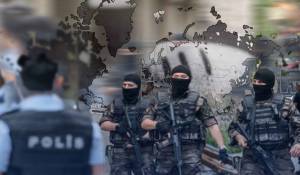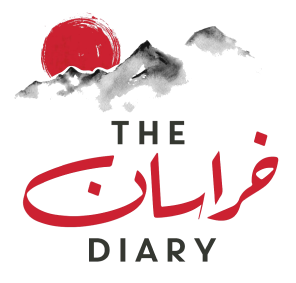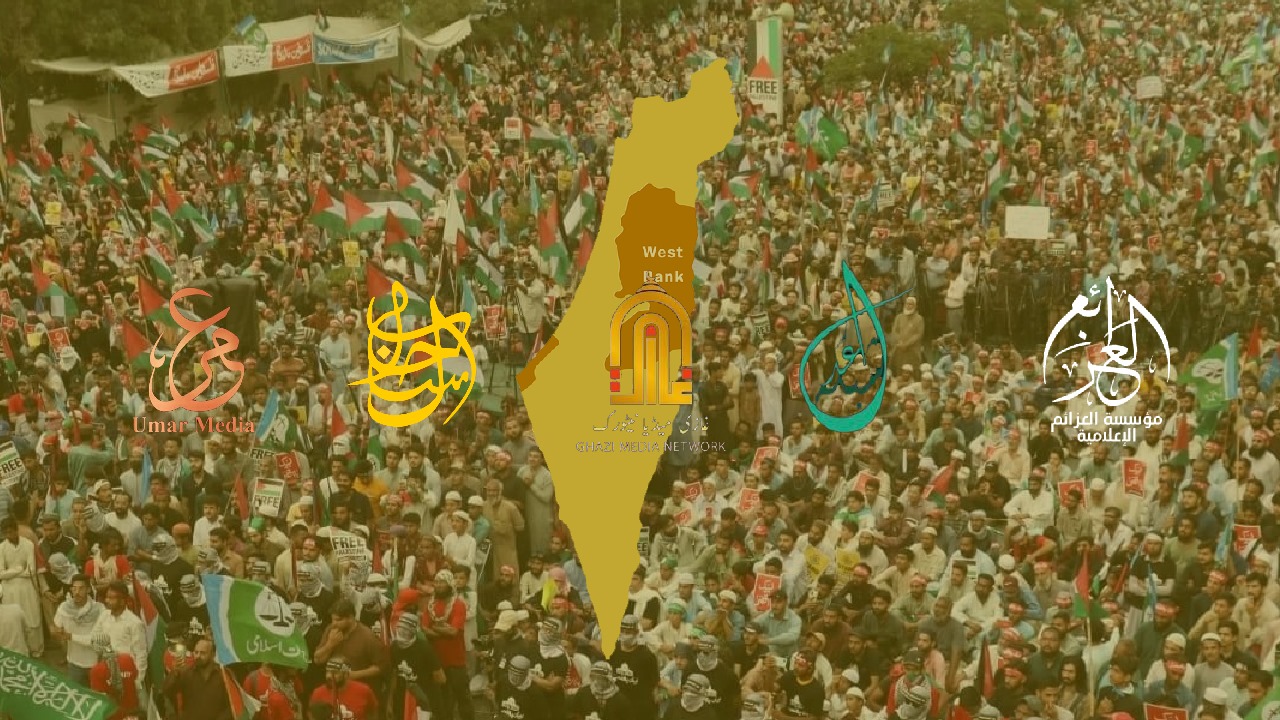
Ihsanullah Tipu Mehsud

March 03, 2026

The ongoing Gaza-Israeli war is rapidly shaping and transforming the narrative of Pakistan’s militant and religio-political landscape.
On the morning of October 7, the armed wing of Hamas, the Izz al-Din al-Qassam Brigades, launched Operation “Al-Aqsa Flood”, a coordinated surprise offensive carried out through infiltration into Israel from the air, sea, and land, including launching of a barrage of over 3,000 missiles.
Amid the ongoing conflict, almost all major religio-political parties of Pakistan held massive rallies while militant organizations have been continuously issuing media content, both urging their respective followers to extend support to Hamas which is based in Gaza, for its “Jihad” against the “oppressive Jewish state” and declaring it as the best form of Jihad the world needs today.
Two Jihadist organizations, the Tehreek-e-Taliban Pakistan (TTP), and its major affiliate which often operates independently on the propaganda front, the Jamaat ul Ahrar (JuA), were quick to issue stern statements of condemnation. Meanwhile, two of the largest religio-political parties of Pakistan, Jamiat-Ulema-e-Islam (JUI-F) and Jamaat-e-Islami (JI), held massive rallies in Peshawar and Karachi, carrying the same tone.
The TTP, in its first statement on October 7, while terming the Al-Qassam offensive an “extremely good and encouraging news” also tried to imply that the offensive was a “lesson for Pakistani Muslims on how to achieve goals through such acts (Qassam’s October 7 attack),” against Pakistani rulers.
Interestingly, earlier, the largest conglomerate of Pakistani Taliban, the TTP, on September 6, carried out an attack using a similar strategy that Hamas employed in its October 7 attack against Israel. The TTP made a surprise incursion with over three hundred armed militants into a key Pakistani tourist destination, Chitral, a district in the northwestern province of Khyber Pakhtunkhwa which borders Afghanistan. As per the group's communications, the attack was aimed at re-establishing a territorial foothold in Pakistan.
The assault, which lasted a few days, was successfully repulsed by Pakistani security forces, forcing the TTP militants to retreat into Afghanistan.
The group’s second statement issued on October 18, which slammed the deadly attack widely believed to be carried out by Israel on the Al-Ahli hospital in Gaza on October 17, was more of a political nature than a threatening one. The statement, while condemning the US for its support to Israel, urged Muslim rulers to come forward and extend support to Palestinians “practically not just through statements and protests” but in the way “Western countries support Israel openly without any fear.”
JuA leader Mukarram Khorasani, apart from lauding the Hamas-led operation, also desired to join the operation physically. “Oh brothers of (Al-Qassam), I desire to be there with you in person, kiss your foreheads and fight alongside with you,” Khorasani, wrote in a group statement issued on October 11.
Militant outfits’ propaganda amid the conflict has also shifted focus on the Pakistan government’s immediate reaction, as these outfits have termed the response “abysmal”, while taking note of Pakistan being a US ally, stressing that the US was acting as the “main abettor” of Israel’s aggression.
An October 12 article by the regional Al-Qaeda’s affiliate, Al-Qaeda in the Indian Subcontinent (AQIS), also issued a strong condemnation of Israel’s attack on Gaza while endorsing al-Qassam Brigade’s attack, terming it the second most significant attack since 9/11 that exposes the “invincibility” of Israeli defence.
However, the statement was more focused on the US rather than Israel, implying that Israel’s aggression had the approval of the North American state. The article carried a kind of strategic, operational, and ideological layout, urging supporters to lay prime focus on coordination and cooperation among jihadist groups in the world against Western countries. The text incited attacks in the West and against Western targets as a way of supporting Palestine.
The statement also harshly criticized Muslim governments which, as per the writer, do not take a firm stand against Israel and the West.
Al-Qaeda’s encrypted communications also implied that Hamas’s October 7 onslaught completely took Israel's security and intelligence services off-guard despite being considered among the world's best.
It said the offensive carried the footprints of Al-Qaeda’s 9/11 attacks which the US intelligence failed to anticipate. Both the TTP and AQIS statements, however, were very much aligned in their tone, urging Muslim countries to take a stand in support of Palestine, by all military means, in the same way the Western world is supporting Israel.
A senior Western diplomat, who deals with the security issues in the region, voiced concerns during a recently held diplomatic gathering in Islamabad following the conflict and consequent militants’ media outburst. “For them, we are the Israelis here. They can’t reach Israel but we are here. This propaganda is being taken seriously in our (diplomatic) circles,” the diplomat said.
While AQIS and TTP statements were similar in tone, other groups issued different remarks concerning the ongoing conflict, as well. Notably, a faction of the sectarian, anti-Shia community Lashkar-e-Jhangvi (LeJ), based in Balochistan, issued a stern statement not only asking Muslims in Pakistan to support Palestinian people, but also warning Sunnis against mistakenly donating money to organizations linked to Shia militant outfit Hezbollah, arguing that Iran was trying to capitalize on pro-Palestinian sentiments to boost its influence in Syria, Lebanon, Iraq, and, ultimately, Palestine itself.
Another regional religio-nationalist armed group, Jaish al-Adl, has also released a two-page statement in the Persian language on the conflict. Jaish al-Adl, an anti-Iran, Sunni militant group, active since at least 2013, following the dissolution of its parent organization Jundullah around 2010-12, primarily carries out deadly attacks against Iranian border guards in the Pakistan-Iran border region. The group’s statement carried two primary messages; condemning the “historical crimes” by Israel against the “defenseless people of Palestine” while also extending sympathy to the Palestinians by expressing that “our hearts are deeply hurt and they are with the oppressed people of Gaza.”
The major part of the statement is focused on Iran. The statement “requests” both Palestinian militant and political groups to be aware of the “treacherous” nature of the Iranian government and its “conspiracy to exploit the bodies of innocent children in Gaza to further its political and ideological agenda and propaganda.”
The consequent narrative has also been setting a political discourse for the upcoming elections in Pakistan as every major Pakistani political party, religious or otherwise, has been securing its vote bank by cashing in on the conflict.
Religious political parties were the first to jump on the bandwagon, instantly followed by the leadership of mainstream political parties who vehemently condemned Israel, terming the Israeli counter-offensive a “crime against humanity," adding that “Israel must be made accountable for its crimes in Gaza.”
Maulana Abdul Aziz, the radical Jihadist preacher and chief cleric of Lal Masjid (Red Mosque), who once served as a bastion for Afghan Jihad in late 1980s against Soviet invasion of Afghanistan is among the few Islamic scholars whom Jihadists from across the globe revere, has also urged Jihadist factions in the region to “intensify” their Jihad against their respective countries in order to overthrow the “British colonial governance system” and implement Sharia.
“We pay heartfelt homage to Palestinian Mujahideen. But the entire Western world is supporting Israel. Thus, all Muslims across the world have to be united against them. Prepare yourself for Jihad as you can’t achieve your goals through mere protests and verbal statements,” Aziz said in an audio statement issued on October 9 related to the ongoing Israel-Palestine conflict.
Jihadists will certainly continue exploiting this war in Gaza for their own narrative building, recruitment, and monetary assistance. Al-Qaeda Central and its affiliates worldwide have long been propagating the Palestinian issue as a major propaganda and motivational tool for all the aforementioned main three objectives.
Al-Qaeda’s narrative then trickles down to independent but like-minded militant outfits across the region. Jihadists are heavily capitalizing on the politics surrounding the ongoing conflict to seek legitimacy and acceptance locally, while trying to portray Muslim countries’ ruling class, which they are at fight with, as equally responsible for what is happening to Palestinians because the former are allies of the US or the Western world and, thus, considered compromised.
Amid the developments, an audio statement from Abu Obeida, the spokesman for Al-Qassam Brigades, surfaced on October 19, where he could be heard pleading with Muslims worldwide, not just Arabs, to march toward the borders of Palestine to support the group and save Palestine and al-Aqsa Mosque.
"We call on people of our nation to march towards the borders of occupied Palestine. We call upon the people of Iraq, Jordan, Lebonan, Syria, Egypt, Yemen, Gulf, Tunisia, Algeria, Libya, Iran, Sudan, Turkiye, Pakistan, Afghanistan, and rest of the world,” Obeida said in the audio.
A few pro-Jihadists scholars, when approached for their views on the Obeida’s call, termed it as a “significant call for help” in light of Islamic Sharia.
“When a Jihadist organization feels that it can’t anymore defend itself against the enemy and requests for help from fellow Muslims, this invokes the obligatory (fard ayn) part of Sharia, making it obligatory to extend support practically,” a scholar, who requested not to be named, said over the phone.
Apart from formal statements from militant outfits, both regional and global, there is currently a debate underway on their encrypted communication channels regarding possible Israeli ground offensive in Gaza.
The majority of the users favour the idea, terming it as an “opportunity” to entrap Israeli ground forces in a protracted urban guerrilla warfare. Communication sites reason that the idea would benefit Al-Qassam Brigades in terms of the know-how of the area, network of tunnels across Gaza, local support, and advanced weaponry.
Few users also cited the example of Iraq where US forces were “trapped” by both Sunni and Shia militant groups in major urban centres like Baghdad and Falluja.
“They (Israelis) have to launch a ground offensive if they really want to end Hamas. And that would provide a best opportunity to Hamas to grab the enemy by the neck,” one user commented in Pashto.
Contrary to most militant organizations in the region which expressed support for and praised the Hamas-led offensive, the local branches of the Islamic State (IS) kept a low profile on an official level, mostly following the rhetoric employed by IS in its official releases – the weekly an-Naba Newsletter – with different reactions on a grassroots level.
The most prominent media affiliated with Islamic State Khorasan Province (ISKP), Al-Azaim Foundation, surprisingly also kept silence over the topic. The group frequently publishes written and audio statements addressing a number of topics – for instance, when the desecration of the Quran took place in Europe, Al-Azaim flooded social media platforms with propaganda, criticizing the West.
On the contrary, on this occasion, Al-Azaim only published a five-pages translation in the Pashto language of an-Naba editorial on October 22, dedicated to listing a number of ways to help the Palestinian people – not Hamas.
On the other hand, other pro-ISKP unofficial media entities such as Mubarzeen Media and al-Hadid Media have published posters, infographics, and audio notes commenting on the conflict.
Most of such propaganda material is a translation in Farsi and Pashto of Islamic State’s stance towards Hamas and other Palestinian militant organizations; chiefly, the main argument is that Hamas is a proxy of the Muslim Brotherhood and Iran, in line with ISKP's main narratives around the latter.
More importantly, some ISKP supporters on various social media platforms, while commenting on the suicide attack in Sar-e-Pul, Baghlan province, Afghanistan, which targeted a Shia Mosque on October 13, celebrated the attack as a revenge for Iran’s support for Hamas during the conflict.
Finally, immediately after the start of the Hamas-led offensive, some ISKP propagandists online started a misinformation campaign aimed at hijacking attacks carried out by other Palestinian militant groups.
In detail, such propagandists started to circulate pictures of alleged Islamic State militants in Gaza who had been killed during operations carried out against Israeli soldiers and civilians.
These pictures were not reported by other Islamic State branches, only by pro-ISKP accounts. Additionally, it is not possible to assess independently whether such pictures were factual or not.